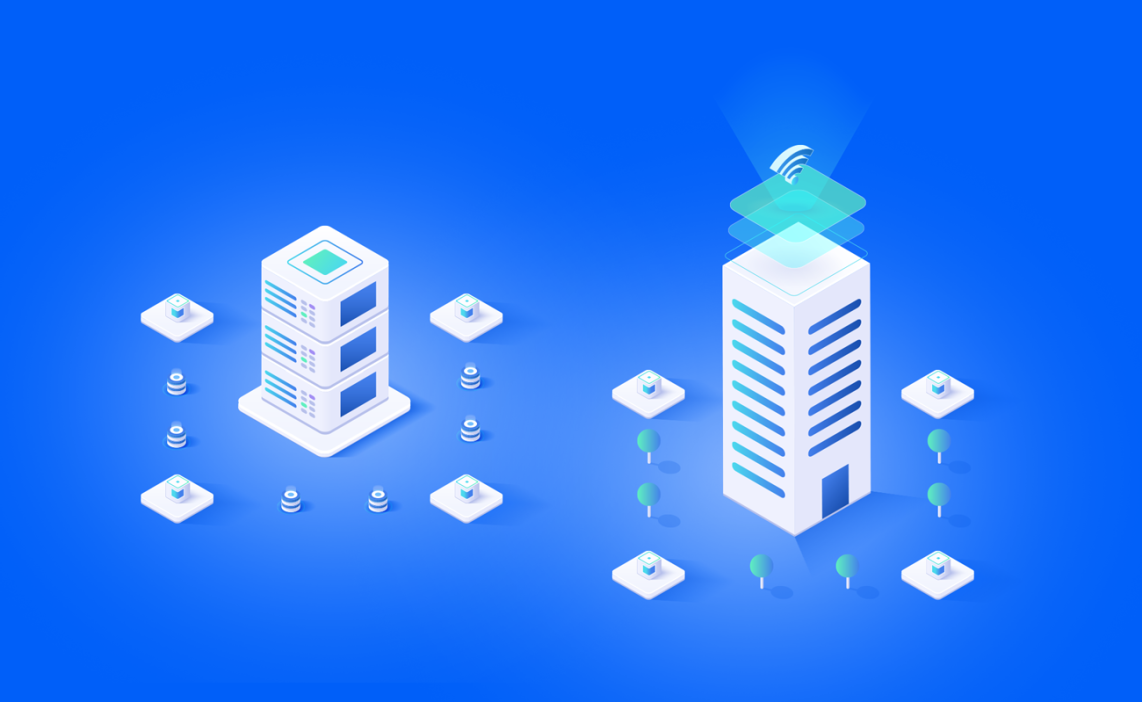Our software, Multilogin, masks all of the common browser fingerprints, such as screen size, operating system, and others that websites use to track and identify you. Using the same browser fingerprint across your different accounts can lead to account suspension.
But ultimately, the biggest fingerprint of all is your IP address. Using the same IP address with multiple accounts is a big red flag that can, and often does, lead to account suspension.
As such, many users log in to their accounts through proxy servers to change their IP addresses and avoid triggering the red flag. But not every IP address is the same. When connecting through a proxy server, you will be using either a residential IP proxy or a datacenter IP proxy.
Note that there are many different ways to mask your IP address other than using a proxy server, like by using a VPN or a separate internet connection, and with those other types of connections, you can end up with either a residential IP or a datacenter IP.
But for the sake of simplicity, in this article, we will group the types of connections with the general terms “residential IP proxy” and “datacenter IP proxy”.
You must understand the difference between the two and use the correct type if you wish to keep your accounts safe. This unbiased guide will detail the similarities and differences between residential IPs and datacenter proxies from A to Z. If you use proxies to control multiple accounts (whether through Multilogin or not), please continue.
What is a residential proxy?
Think of a residential IP as a connection that is assigned from an ISP to a homeowner. When you move to a new house or apartment and set up internet, your connection is assigned an IP address. Go to a website like What Is My IP and your IP address will be on display for the world to see.
It will look like 11.22.33.444 or 111.22.33.444. You’ll also see details associated with your IP address, like your ISP name, and even your rough location. If you connect through a different residential IP address by using it as a proxy, when browsing, your public IP information will appear to be for whatever particular residence the IP is used at.
What is a datacenter proxy?
A datacenter proxy is different in that it is not owned by an ISP. It can function as a “wall” between you and anyone who tries to look at your IP through the web. Instead of seeing your home IP address and all of its associated identifying information, the person trying to look at your real IP address sees only the datacenter proxy address, as well as the information associated with the company that owns the datacenter. You can think of a datacenter proxy as a way to mask your real IP address and its associated identifying information – but not as a full replacement for a residential IP.
What’s the difference?
If you are using a new connection for the simple purpose of masking your real IP address, then you may be wondering what the point of using a residential IP as a proxy is. After all, you just need a different IP address to fool websites into thinking you’re someone else – right?
Sort of. The problem is that people are trying to spam popular sites day in and day out. They know they need different IP addresses to get around website filters, so they usually turn to datacenter IPs, because datacenter IPs are easier to acquire in bulk than residential IPs are (explained further down the page).
So, almost all users with nefarious intentions are using datacenter IPs. There are also legitimate users using datacenter IPs. For example, many corporate offices make their employees use them.
But overall, a very small percentage of legitimate users are using datacenter IPs over residential IPs – and almost all nefarious users are using datacenter IPs. This combination means that a high percentage of users with datacenter IPs will be trying to access a website for spammy or malicious purposes. So, while you can certainly use a datacenter IP to browse the web when you do, you will very likely be held to extra scrutiny by website security systems.
Rest assured that security systems will indeed be able to tell whether or not you are using a datacenter IP. To start, they will grab the info for the IP and see if you are using a datacenter gateway (either a VPN or proxy). If you are, you will immediately be placed into a small subset of users that are held to extra scrutiny.
From there, certain security systems may go a step further and try to determine if you are using a VPN or a datacenter IP proxy by checking which ports are open. The majority of VPNs have just port 80 open, whereas datacenter IP proxies have multiple ports open.
In general, users choose a VPN for privacy reasons, because using a VPN will encrypt traffic and protect the user from attacks. But datacenter IP proxies serve the sole purpose of masking your IP address – they do nothing for encryption – and they are usually much cheaper to buy in bulk.
So, most nefarious users choose datacenter IPs, and website security systems can and will scrutinize them more than they do for residential IPs or VPN datacenter IPs. That’s the biggest difference between the two.
You can perform a similar test yourself with a tool like Whoer. Go to that link, and if you are using a datacenter IP with open ports, the security system will be able to tell that you are – though it will not be able to tell what the real IP behind the proxy is, assuming you have taken the proper precautions and disabled browser extensions that may leak your real IP.
There are a few other differences between residential and datacenter IP proxies, too.
Residential connections
More legitimate. Creating hundreds of datacenter proxies yourself isn’t particularly difficult, and we will even detail how to do it a bit further down the page. But getting hundreds of residential IP proxies is extremely difficult – because residential IPs are assigned only to residents. As such, security systems generally deem residential IPs to be more genuine and legitimate than datacenter proxies. The reasoning goes something along the lines of “if you’re not doing anything wrong, then you have nothing to hide” (you have no reason to use a proxy).
More expensive with few providers. Because of how difficult it is to collect residential IPs that can be used as proxy connections, fewer providers offer them, and getting a monthly subscription to access a pool of them is usually extraordinarily expensive – though for some users, the monthly subscription can sometimes be cheaper than a large monthly subscription of datacenter IP proxies. We will detail a few providers further down the page.
Sometimes blacklisted. Residential IPs are more trusted, but they are still prone to abuse. As such, some will still be blacklisted by certain security systems and databases. Having a residential proxy connection is better – but not perfect.
Datacenter connections
Less legitimate, but still protective. As we covered, websites can detect that you are using a proxy connection, and because of spammers and other nefarious users out there, you are immediately held to scrutiny when logging into an account with one. But, all the website can tell is that you are using a datacenter proxy in general. Most proxies will completely shield your main IP address. So, using a clean datacenter proxy for each account is better than using your real IP for each account – though it’s clear you are on a proxy, assuming you are using different proxies, your accounts aren’t directly connected.
Less expensive with lots of providers. Because of how easy it is to get datacenter proxies, there are plenty of providers to pick from, and as such, private datacenter proxies generally cost a fraction of what residential IP “proxies” do.
Which one should you use?
We aren’t trying to sell you proxies of either type so you can take this as unbiased analysis of when to use each one. Be careful taking advice from a proxy or VPN company that profits from your decision.
Datacenter proxies will be fine for the majority of users, assuming you are covering your tracks by using a browser fingerprint mask like the one included in Multilogin. Remember that seeing a datacenter proxy is just one trigger in a security system.
If you have a clean datacenter proxy and the rest of your fingerprint is credible, most websites will let you pass without scrutiny. Keep in mind that legitimate users do use datacenter IP connections.
But, if your browser fingerprint is leaving a footprint (you are logging in with different datacenter proxies but using the same browser fingerprint for each login), the security system will likely take action against you.
Many users think that just using a proxy is enough – but these days, it’s not. You need the accompanying fingerprint masking along with your datacenter proxy masking to fly under the radar.
There are also some unique cases where using a datacenter proxy is always a dead end, even if proper fingerprint masking techniques are being utilized. The most mainstream example is Craigslist. Craigslist is used as a local person-to-person classified ad board.
Letting users post across the country is asking for spam. So, developers tend not to allow datacenter proxy usage at all, and residential IPs are restricted to posting to wherever the IP information shows they are located.
You might be able to get by with residential IP proxies on Craigslist if you are an extremely skilled poster, but if you are buying regular datacenter proxies and trying to post with those, even if your fingerprints are masked, and even if the datacenter proxies show a location close to where you are posting, you still will likely not have success.
Overall, assuming you are masking your fingerprints, most will be able to get by with using datacenter proxies. But, certain proxy applications will require residential IPs, and in general, connecting to a website through a residential IP will throw up fewer red flags than connecting through a datacenter proxy will.
Datacenter proxies
Buy from a provider. There are countless companies offering datacenter IPs at a monthly rate. You can buy private proxies, which are used by only you, or you can buy shared proxies, which are shared between you and multiple other customers. Shared proxies are cheaper, but most Multilogin users will want to control their accounts with private proxies to ensure that others do not abuse the proxies and put your accounts at risk.
Set up your own proxy pool. The process is easier than you think, and if you put the effort in, you can guarantee that you are using fresh datacenter proxies – instead of ones that have potentially been abused over and over for years.
Residential proxies
Buy from a known provider. The biggest provider of residential IPs is a company called Bright Data, formerly Luminati. That company also runs an SDK service for application vendors. When a user installs such an app, they agree to share their IP with Bright Data customers. Basically, with a Bright Data subscription, you can access the IP of anyone who opted-in to share. Some people have their doubts as to the ethics of this practice, but the proxy connections Bright Data provides are indeed residential IP connections, and not from a datacenter. We mentioned earlier that these residential IP subscriptions are expensive. Bright Data starts at $500 per month. For a bit less expensive option, try Geosurf (starts at $450 per month). Beware of shady companies that operate similarly to Bright Data… except without the consent of the machines that the connection-enabling software or plugin is installed on.
Create your own “gateway” of residential IPs in a particular location through the usage of smartphones and mobile connections.
Looking for a Powerful and Affordable Residential Proxy? Try Multilogin!
Conclusion
Is your head spinning? Below, we will recap everything we just covered. Like we mentioned at the start of this guide, make sure you understand the information in full before using proxies with your accounts – or else they might be at risk.
Datacenter proxies and connecting to a residential IP to use as a proxy will both accomplish the same task: hiding your real IP from the internet.
However, website security systems can detect whether you are using a datacenter proxy, or if you are coming from a normal residential IP.
Using a datacenter proxy won’t necessarily get your accounts suspended, but it is a red flag to many major web platforms.
When using proper fingerprint masking techniques (like the ones included in Multilogin), most users will be able to successfully control multiple accounts safely with datacenter proxies, despite the red flag.
However, certain websites will restrict datacenter proxies in general – here, you will have to use residential IPs.
Because they do not show you are using a proxy connection, residential IP connections are generally more secure to use (in terms of keeping your account safe), though some residential IPs can still become blacklisted through abuse.
Overall, determine which type of connection you need for your purposes, buy from a provider or set up your own network to obtain IPs, then combine your new connections with unique browser fingerprints from a software like Multilogin to ensure you pass by all of the security systems features on the websites you wish to use multiple accounts on.
If you are looking for an easy way to run different accounts with proxy management and bulletproof fingerprint masking, check out Multilogin. It’s the most effective way to control an army of online accounts, and to ensure the safety of them whenever you log in – no matter which type of proxy connection you ultimately end up choosing.


